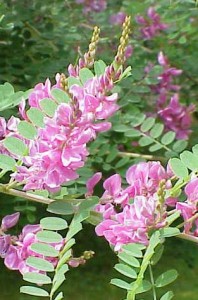
More evidence that low-calorie sweeteners are bad for your health
Studies show that artificial sweeteners can raise the risk of hypertension, metabolic syndrome, type 2 diabetes and heart disease, including stroke.

Natural Health News — Two recent preliminary studies have shown that substances derived from plants commonly used in herbal medicine have a role to play in fighting cancer.
In the first published in the journal Carcinogenesis grape seed extract (GSE) killed head and neck squamous cell carcinoma cells, in test tube and animal models, while leaving healthy cells unharmed.
“It’s a rather dramatic effect,” says Rajesh Agarwal, PhD, investigator at the University of Colorado Cancer Center and professor at the Skaggs School of Pharmaceutical Sciences.
The effect, however, depends in large part on a healthy cell’s ability to wait out damage.
“Cancer cells are fast-growing cells,” Agarwal says. “Not only that, but they are necessarily fast growing. When conditions exist in which they can’t grow, they die.”
In this study the GSE created conditions that were unfavourable to cancer cell growth. Specifically, it both damages cancer cells’ DNA (via increased reactive oxygen species) and stops the pathways that allow repair (as seen by decreased levels of the DNA repair molecules). Importantly the grape seed extract showed absolutely no toxicity to the animals in the study.
Indigo derivative halts brain cancer
In another study published in the journal Cancer Research scientists discovered that the compound, indirubin both blocks the migration of glioblastoma cells, preventing their spread to other areas of the brain, and the migration of endothelial cells, preventing them from forming the new blood vessels that the tumour needs to grow.
Indirubin is derived from the Indigo plant. It is the active ingredient in the Chinese herbal remedy called Dang Gui Long Hui Wan, traditionally used to treat chronic myeloid leukaemia.
Glioblastoma is a particular lethal form of brain cancer with a relatively poor survival rate due mostly to the fact that the cancer readily spreads to other areas of the brain.
“We have pretty good methods to stop glioblastoma from growing in the human brain, but these therapies fail because tumour cells migrate from the original site and grow elsewhere in the brain,” says co-principal investigator Dr E Antonio Chiocca, professor and chair of neurological surgery and co-director of the Dardinger Center for Neuro-oncology and Neurosciences.
The study’s findings suggest that indirubin offers a way of simultaneously targeting the spread of the cancer cells as well as halting the formation of new blood vessels which the tumours need to grow.

Please subscribe me to your newsletter mailing list. I have read the
privacy statement